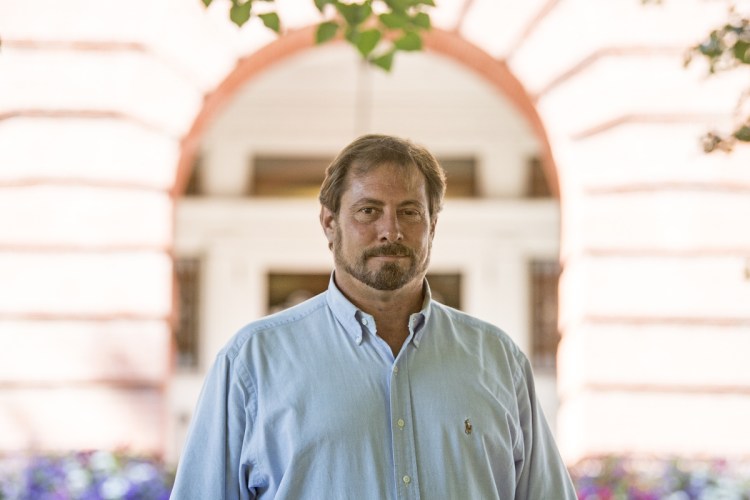The state’s Commission on Governmental Ethics and Election Practices will meet in Augusta on Wednesday to discuss candidates who qualified for Clean Elections funding but were denied access to their funds after a typo in the biennial budget eliminated $3 million in funding.
Two Republican candidates for the state’s House of Representatives — Mark Andre for District 110, which includes Waterville and Oakland, and Kathy Javner for District 141, which includes parts of Washington and Penobscot counties — both qualified to receive Clean Elections funding. However, because of recounts in both their primary contests, the deadline for them to receive the funding passed. Those two candidates, along with 128 others who qualified for additional funding, haven’t received their funding because the Legislature unintentionally reduced the commission’s spending authority by $3 million.
Andre has claimed the shortfall has unfairly left him at a disadvantage as his Democratic opponent, Colleen Madigan, is also a Clean Elections candidate who has received her funding. He said he has contracted services that need to be paid for. Andre’s recount occurred near the end of June, and the new fiscal year began on July 1, but the state has been unable to make payments for Clean Elections.
Rumors that lawmakers would meet Monday or Tuesday to address the budget shortfall have been squelched by both Senate President Mike Thibodeau and Speaker of the House Sara Gideon who said they were not calling lawmakers back into session.
“I do not intend to call the Senate back into session until an agreement is reached to move the tax conformity legislation out of the House of Representatives and to the Senate for final enactment,” Thibodeau wrote in a letter to senators.
Likewise, Gideon wrote to representatives that it wasn’t clear when they would be called back to Augusta as they await the fate of three bills on Gov. Paul LePage’s desk.
“For planning purposes, I do not anticipate that we will be coming in Monday, July 23,” she wrote.
In an email exchange between Andre and Jonathan Wayne, the executive director of Maine’s Commission on Governmental Ethics and Election Practices, Andre was told to be patient while waiting for the $5,075 he is owed in Clean Elections funds. Initially, Andre had responded he would not “sit tight” and was planning to loan himself the balance of what the state owed him. However, Wayne advised against this, as Clean Elections candidates can’t accept private donations, and even a loan to himself would have counted as a private donation.
On Friday, Andre agreed to wait until the commission met on Wednesday before going forward with the loan.
“As per your prior request, I will sit tight until then regarding the loan to provide the initial funding of $5,075 owed to my campaign per the MCE agreement,” Andre wrote. “In advance of the meeting, I request you send a list of the various options that will be considered for MCE candidates to finance their campaigns pending a legislative fix. I’m assuming they are not ‘good’ options or you would’ve implemented them weeks ago rather than allowing this inequitable situation to continue, but I would like an opportunity to review and comment on them ahead of the July 25th meeting. Please also comment as to whether this is an open meeting (time and place if it is) and if my campaign is able to submit materials for consideration by the Commission and the process for doing so.”
In his response to Andre, Wayne acknowledges the rumors that the Legislature may have met on Monday or Tuesday, but ultimately did not, and states he feels “shot down” in his attempts to “circumvent the current obstacles to make a payment to you.”
“If the Legislature does not meet on July 23 or 24, the Commission may decide that it is premature to make decisions about the financial restrictions on MCEA candidates through the rest of the year,” Wayne wrote.
Wayne had said Andre should contact party leaders Rep. Ken Fredette and Rep. Ellie Espling about the issue. Andre had said that would be lobbying on behalf of the Ethics Commission, which he said was not appropriate for a candidate to do.
The Clean Elections Act, established in 1996, is a voluntary program that fully finances qualified individuals running for governor or the Legislature. To qualify, candidates must collect a minimum number of checks or money orders of $5 or more made payable to the Maine Clean Election Fund. Once the candidate qualifies, he or she cannot accept private contributions.
The Wednesday meeting is at 9 a.m. at the Commission’s office on Memorial Circle.
Colin Ellis — 861-9253
cellis@centralmaine.com
Twitter: @colinoellis
Send questions/comments to the editors.




Comments are no longer available on this story